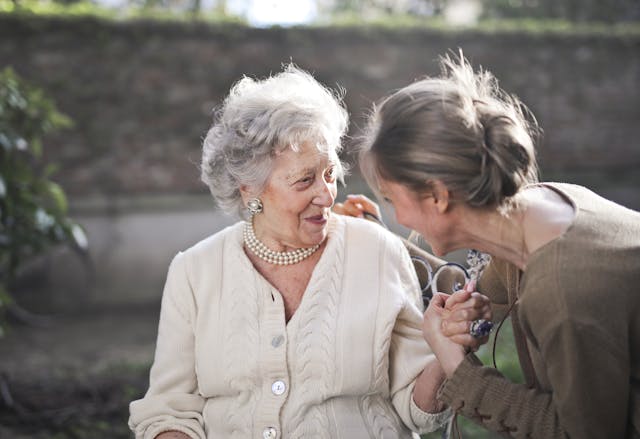Around 75% of people aged 65 and over in Britain have experienced high levels of anxiety and low mood at least once after the age of 65. And depression affects 40% of those in care homes, based on recent surveys. Briefing Center for Mental Health. Poor mental health is an inevitable part of growing older. You often hear health professionals say that. As you get older, you will face challenges (physical health issues, loss of loved ones, mobility issues, financial insecurity in retirement). These problems make a person feel lonely, anxious and depressed; factors that negatively affect your mental health. However, growing older shouldn’t get in the way of your positive mental health. You can maintain your psychological well-being with the right support and resources. This short guide aims to provide practical ways to improve your mental health in your later years.
Anticipate changes and prepare
Aging brings physical and psychological changes that some may not like. Your mind may not be as sharp as it was in your 40s, or you may not be quick on your feet, for example. Painful joints make mobility difficult and your vision or sense of taste and touch may deteriorate. What you can do to stay mentally healthy is to accept these changes. Then, focus on eating nutritious foods, exercising, and prioritizing enough sleep to re-energize. In addition to physical changes, your work life will also undergo a change.
Perhaps it is almost time to retire or you want to continue working, but on a part-time or flexible hours basis. Financial concerns, such as pensions, local facilities for the elderly, transport, wills, end of life and funerals, are other concerns that can disrupt your mental health. Having a strategy can help you address these concerns as you get older. For example, research pension credits and life insurance plans on the UK government website. Then plan your finances for later years to avoid financial stress. As you retire, think of a new skill or hobby you can learn and set a schedule for it. You can also look for volunteer work at your community to keep busy. When you anticipate and accept the changes that aging brings, you can do things that keep you healthy. And you’re less likely to experience bad moods and depression.
Ask for help
When you get old, it is normal to feel insecure. And to wonder if you can do household chores, budgeting and taking care of yourself. Feeling insecure can make you feel stressed and affect your mental well-being. Instead of struggling with things that frustrate you, ask for help. The people you turn to first are, of course, your friends and family. Research results show this social support promotes healthas it strengthens one’s coping skills, quality of life when dealing with stress and overall well-being.
Note: Social support doesn’t just come from your network of friends and family. Your GP can advise you on this, recommend exercise therapy or suggest specialized care from, for example, a qualified therapist. You might also consider moving to one respite care center if you want to get away from home for a while. These types of care homes provide older people with short-term stays in a safe and supportive environment to enhance their psychological and physical well-being. Caregivers at home can also take a break to care for themselves.
Stay active, physically and mentally
What exercise does is release feel-good endorphins (hormones) in the brain that improve mood and reduce stress levels. Research research on the Mental Health Foundation website reveal that active people feel more awake and enthusiastic. Daily exercise also reduces the risk of cognitive decline and depression by 20% to 30%. However, in later years, exercising can be difficult. The best option is to do 30 minutes of light exercise every day for five days, as the recommendations of the Ministry of Health can have a positive impact. Choose to walk up and down the stairs instead of using the elevator, ride a bike, slow dance, walk, swim, and take care of the garden. If you have mobility issues, stretch while seated to promote blood circulation. In addition to physical training, you can train your brain with crossword puzzles, reading books, learning a new language or playing board games (chess, Scrabble or cards).
Going through different stages of life (getting older) brings changes in circumstances that alter your mental health. Grief, retirement, chronic illness and mobility issues cause depression and anxiety in your senior years. Fortunately, you can keep your mental well-being positive by being aware of and preparing for lifestyle changes. Getting help and staying physically and mentally active are other essential ways to protect your psychological well-being.





